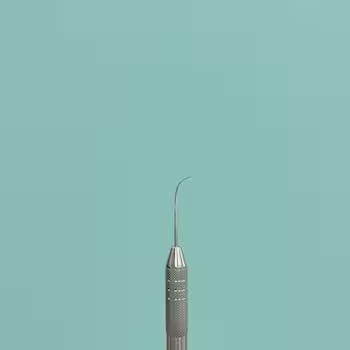-
Contents
“Unlock the Future of Nuclear Medicine with AI: Discover How Technologists are Impacted!”
Nuclear Medicine Technologists are healthcare professionals who specialize in the use of radioactive materials to diagnose and treat diseases. As technology advances, artificial intelligence (AI) is becoming increasingly prevalent in the medical field. This raises the question of how AI will affect Nuclear Medicine Technologists and their roles in the healthcare system. In this article, we will explore how AI is impacting Nuclear Medicine Technologists and what they can do to stay ahead of the curve. We will also discuss the potential benefits and drawbacks of AI in this field.
Exploring the Impact of AI on Nuclear Medicine Technologists

The emergence of artificial intelligence (AI) has had a profound impact on many industries, and Nuclear Medicine Technologists are no exception. AI is being used to automate many of the tasks that were traditionally performed by Nuclear Medicine Technologists, such as image analysis and diagnosis. This shift has the potential to revolutionize the field of nuclear medicine, allowing for more accurate diagnoses and improved patient care.
At its core, AI is a form of computer programming that enables machines to learn from data and make decisions without human intervention. In the field of nuclear medicine, AI can be used to analyze images and detect abnormalities in a fraction of the time it would take a human technologist. This can help reduce errors and improve accuracy in diagnosis. Additionally, AI can be used to automate certain tasks such as dose calculations and patient scheduling, freeing up technologists to focus on more complex tasks.
AI also has the potential to improve patient care by providing more personalized treatment plans. By analyzing patient data, AI can identify patterns and suggest treatments tailored to each individual’s needs. This could lead to better outcomes for patients and improved efficiency for healthcare providers.
Despite these potential benefits, there are some concerns about the impact of AI on Nuclear Medicine Technologists. As AI becomes more prevalent, it could lead to job losses as machines take over many of the tasks traditionally performed by technologists. Additionally, there is a risk that AI could lead to increased medical errors if it is not properly implemented or monitored.
Overall, AI has the potential to revolutionize the field of nuclear medicine by improving accuracy and efficiency in diagnosis and treatment. However, it is important to consider the potential implications for Nuclear Medicine Technologists before fully embracing this technology. With careful implementation and oversight, AI could be an invaluable tool for improving patient care while still allowing technologists to remain an integral part of the healthcare team.
Examining the Potential Benefits of AI for Nuclear Medicine Technologists
As Nuclear Medicine Technologists, we are constantly looking for ways to improve patient care and safety. Artificial intelligence (AI) has the potential to revolutionize the field of nuclear medicine, providing us with new tools to diagnose and treat patients more effectively. In this article, we will explore the potential benefits of AI for Nuclear Medicine Technologists.
First, AI can help us make more accurate diagnoses. By using AI-powered algorithms, we can analyze large amounts of data quickly and accurately. This can help us identify patterns in patient data that may not be obvious to the human eye. Additionally, AI can be used to detect subtle changes in patient data over time, allowing us to monitor patients more closely and intervene earlier if necessary.
Second, AI can help us reduce radiation exposure for our patients. By using AI-powered algorithms, we can optimize imaging protocols to minimize radiation exposure while still providing high-quality images. This can help us ensure that our patients receive the best possible care while minimizing their risk of radiation-related health complications.
Third, AI can help us streamline our workflow. By automating certain tasks such as image processing and analysis, we can free up our time for more important tasks such as patient care and education. This can help us provide better care for our patients while also reducing our workloads.
Finally, AI can help us improve patient safety. By using AI-powered algorithms, we can detect potential errors or anomalies in patient data before they become a problem. This can help us catch mistakes before they cause harm to our patients and ensure that they receive the best possible care.
In conclusion, AI has the potential to revolutionize the field of nuclear medicine by providing us with new tools to diagnose and treat patients more effectively. By leveraging the power of AI, we can make more accurate diagnoses, reduce radiation exposure for our patients, streamline our workflow, and improve patient safety. As Nuclear Medicine Technologists, it is important that we stay up-to-date on the latest advances in AI so that we can continue to provide the best possible care for our patients.
Assessing the Challenges of AI for Nuclear Medicine Technologists
The emergence of artificial intelligence (AI) in the field of nuclear medicine has the potential to revolutionize the way technologists work. AI can help technologists make more accurate diagnoses, reduce radiation exposure, and improve patient care. However, there are several challenges that must be addressed before AI can be fully integrated into nuclear medicine.
First, AI requires a large amount of data to be effective. Nuclear Medicine Technologists must ensure that the data used to train AI algorithms is accurate and up-to-date. This can be difficult to achieve due to the complexity of nuclear medicine and the need for specialized knowledge. Additionally, AI algorithms must be regularly updated as new data becomes available.
Second, AI algorithms are only as good as their training data. If the data used to train an algorithm is biased or incomplete, the results may not be reliable. This could lead to incorrect diagnoses or other errors that could have serious consequences for patients. To ensure accuracy, technologists must carefully evaluate the data used to train AI algorithms and make sure it is representative of the population being studied.
Finally, AI algorithms require significant computing power and resources to run effectively. This can be a challenge for smaller nuclear medicine departments that may not have access to the necessary hardware or software. Additionally, technologists must be trained in how to use AI algorithms and interpret their results correctly.
In conclusion, while AI has great potential in nuclear medicine, there are several challenges that must be addressed before it can be fully integrated into practice. Technologists must ensure that the data used to train AI algorithms is accurate and up-to-date, evaluate the data for bias or incompleteness, and have access to sufficient computing resources. With these challenges addressed, AI could revolutionize nuclear medicine and improve patient care.
Q&A
1. How is AI impacting Nuclear Medicine Technologists?
AI is being used to improve the accuracy and efficiency of nuclear medicine imaging. AI can be used to automate the analysis of images, allowing technologists to focus on more complex tasks. AI can also be used to detect anomalies in images that may not be visible to the human eye.
2. What are the benefits of using AI in Nuclear Medicine?
The use of AI in nuclear medicine can help reduce errors, improve accuracy, and increase efficiency. AI can also help reduce radiation exposure for patients by providing more precise imaging results. Additionally, AI can help reduce costs associated with nuclear medicine procedures by automating certain tasks.
3. Are there any risks associated with using AI in Nuclear Medicine?
Yes, there are some risks associated with using AI in nuclear medicine. For example, if the AI system is not properly trained or calibrated, it could lead to inaccurate results or false positives. Additionally, if the system is not properly monitored, it could lead to incorrect diagnoses or treatments.In conclusion, Nuclear Medicine Technologists are not currently being affected by AI, but it is likely that AI will play a role in the field in the future. As technology advances, AI may be used to help with diagnosis and treatment of diseases, as well as to improve safety and accuracy in nuclear medicine procedures. It is important for Nuclear Medicine Technologists to stay up-to-date on the latest developments in AI so they can be prepared for any changes that may come their way.
If you’re a Nuclear Medicine Technologist and want to know how AI is affecting your profession, click here to find out more! Don’t miss out on the latest news and developments in AI and its impact on Nuclear Medicine Technologists.


